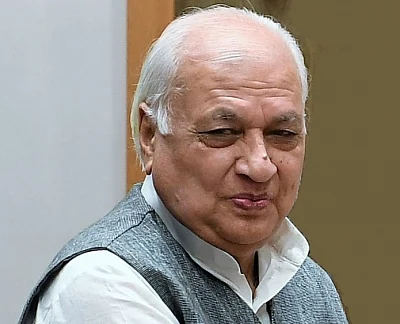Amid the row over the wearing of hijabs in educational institutions across Karnataka, Kerala Governor Arif Mohammed Khan on Friday, 11 February, claimed that the headscarf was meant "to keep Muslim women oppressed."
"In Arab societies, there were people who used to bury their infant girls immediately after birth. Islam put an end to it, but that mindset still prevails. First, they invented triple talaq, then hijab, and then other kinds of things to keep Muslim women oppressed," he told news agency ANI.
"India is being asked to believe that hijab is intrinsic. If we accept that argument, Muslim girls will be pushed again to their homes because if they can't pursue education, their interest in education will diminish," he added.
The hijab controversy began at a government pre-university college in Udupi, where six students wearing headscarves were denied entry into the campus. The issue spread to different parts of Karnataka with Hindu students turning up in saffron shawls and protesting the Muslim women's right to wear the hijab.
Emphasising that women were free to wear anything that they wanted, Khan said that they would, however, have to comply with the rules and regulations of the institution they were working or studying in.
On Friday, the Governor referred to a story to substantiate his claim. "A young girl was brought up in the household of the Prophet. She was the niece of the Prophet's wife. She was really beautiful. When her husband chided her for not wearing a veil, she said that God made her beautiful and placed the stamp of beauty on her. She wanted people to see her beauty, the grace of God on her and she was thankful to God for that. This was how women of first-generation behaved. That's all I can say," he said.
(At The Quint, we question everything. Play an active role in shaping our journalism by becoming a member today.)
